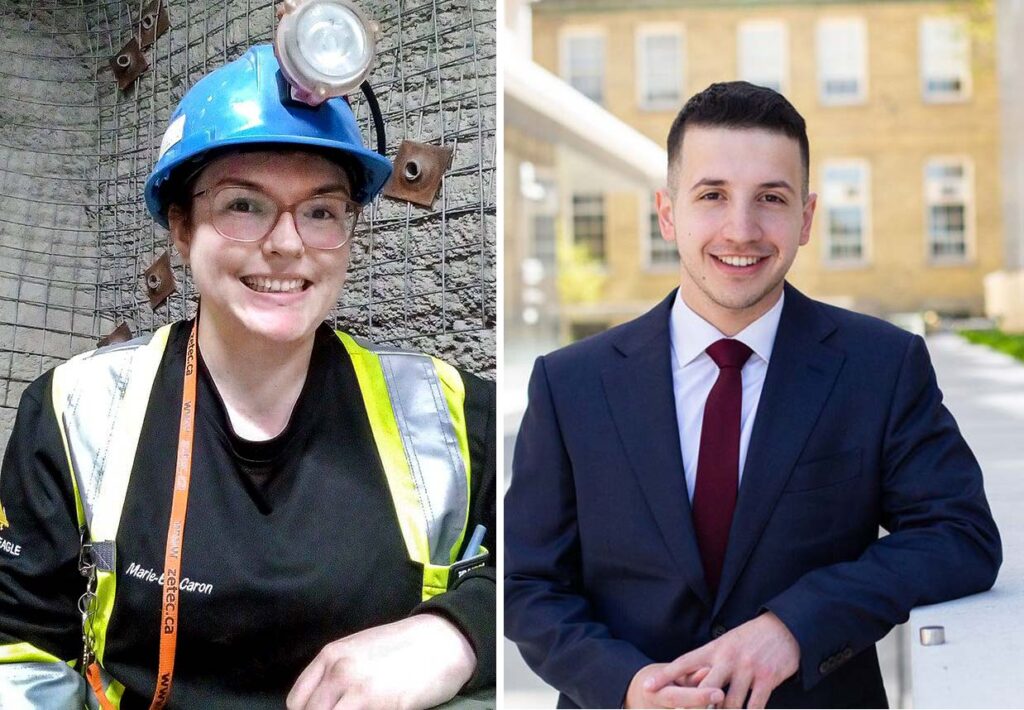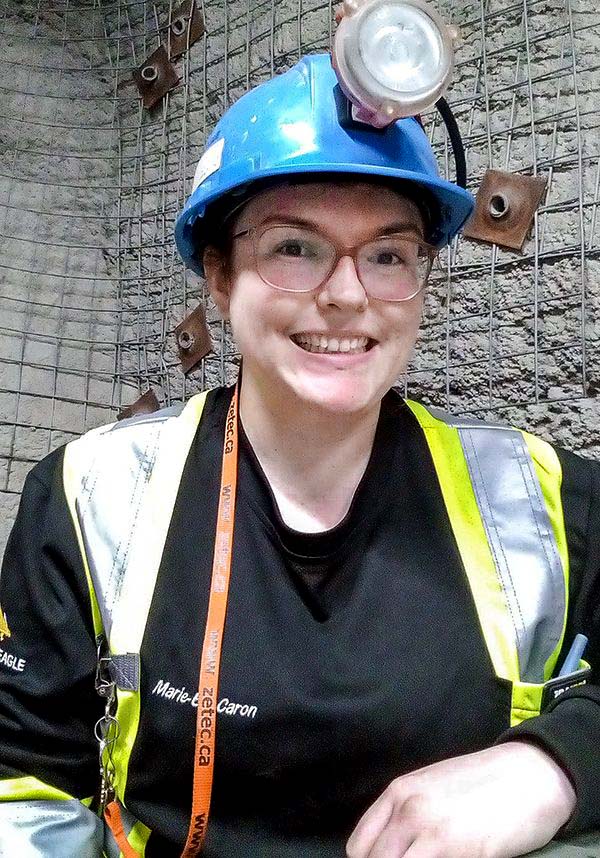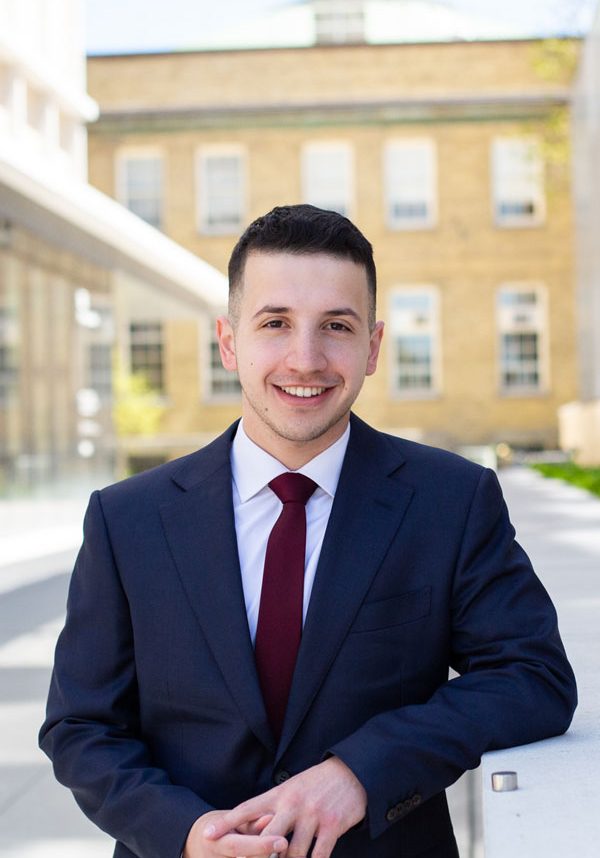
With the University’s Convocation ceremony on June 16, 2022 U of T Engineering students mark the end of one journey and the beginning of another.
ENHANCING MINING STABILITY

Marie-Eve Caron (CivMin MASc 2T2)
Caron describes her two years as a Civil & Mineral Engineering MASc student as a roller-coaster ride.
“It had its highs and lows,” she says. “But I am grateful for the support I had from those around me, including my thesis supervisor and members of the department.”
While many of her classes and projects were completed remotely, Caron was still able to immerse herself in the social life of her department through the CivMin Graduate Students Association (CivMinGSA), where she served as vice-president, social.
“We not only had good times during our events, but we were able to connect and share in the unique challenges of graduate studies,” she says.
She credits her CivMinGSA experiences, along with her studies, for allowing her communications skills to flourish and helping boost her self-confidence.
In the spring, Caron began her professional career at Agnico Eagle’s LaRonde Mine in Quebec, where she previously had worked during her thesis project. As a ground control engineer in training, she is responsible for following up daily on the stability of underground excavations.
“High-stress conditions and seismicity are among the challenges we deal with,” she says. “My master’s degree under the supervision of Professor John Hadjigeorgiou (CivMin) has prepared me for this role.”
Caron’s thesis focused on data collection for rockburst investigations. It involved collecting all available design, implementation, monitoring and performance data to construct a timeline for each rockburst, which are a sudden rupture or collapse of highly stressed rock in a mine.
“I have learned a lot in my field of study, and I now feel confident that I have established strong basis to strive in my career,” she says. “But I still have much to learn, and I am enthusiastic about it!”
“I would like to thank everyone who participated in CivMinGSA, whether it was by attending our in-person and online events or taking the time to help organize everything. Our time together was a highlight of my U of T experience, and I am happy for the memories we created! I would also like to thank Colleen Kelly, Phill Snel and Nelly Pietropaolo from the Department of Civil & Mineral Engineering. Their collaboration and positive attitude were always appreciated.”
GROWING GREENER CITIES

Salim Hourieh (CivE 2T2)
Growing up in Syria, Hourieh frequently found himself comparing the built infrastructure in his own country to that of cities in the West.
“Rapid urbanization was benefitting the general economy, but it was also leading to widening socioeconomic disparity,” he says. “I recognized that this was a planning issue and sought to provide myself with the education needed to address urban growth sustainably.”
With the outbreak of the Syrian civil war, Hourieh realized that pursuing his dream of studying civil engineering would mean leaving home. He began his schooling at the American University of Beirut, then transferred to U of T Engineering, where he found mentors who helped him combine his interests in economic progress, sustainability and engineering.
These included Professor Shoshanna Saxe (CivMin), with whom he developed a data set on construction material flow in North America. This data set will help researchers investigate how building design affects material use, as well as ways to reduce construction material consumption. Hourieh says that the project helped him realize how impactful his engineering skill set can be and how the incorporation of sustainable practices varies widely within regions across North America.
Another way Hourieh made an impact was by joining World University Services of Canada (WUSC), an organization that sponsors students from refugee camps to study in Canada. Serving as vice-president of his local committee, Hourieh and his team were able to directly sponsor two students to study at U of T. He later shared the team’s experience with 73 local committees from across Canada at the WUSC national conference.
“The social cause of sponsoring refugees resonates deeply with me after witnessing first-hand the displacement of thousands of Syrian families,” he says.
After graduation, Hourieh will take up a position as a consultant at IBM. His long-term goal is to lead sustainable urban development in under recognized areas through the implementation of multidisciplinary approaches in planning.
“I believe that my experiences and engineering background will allow me to facilitate
empathetic dialogue that will empower us to address the global challenge of meeting urban needs sustainably,” he says.
“I am grateful to everyone who guided me throughout my undergraduate studies, especially Professors Shoshanna Saxe, Sarah Haines and Daniel Posen (both CivMin), and postdoctoral fellow Dr. Gursans Guven. I’d also like to thank Trinity College for being my home, and the Engineering community for supporting me. My heartfelt gratitude goes to my supportive family, who have been there for me every step of the journey, and to WUSC, an excellent organization that influences many students around the world.”
BY SAFA JINJE & TYLER IRVING
This story originally published, including all 14 Grads to Watch, by Engineering News – see them all here